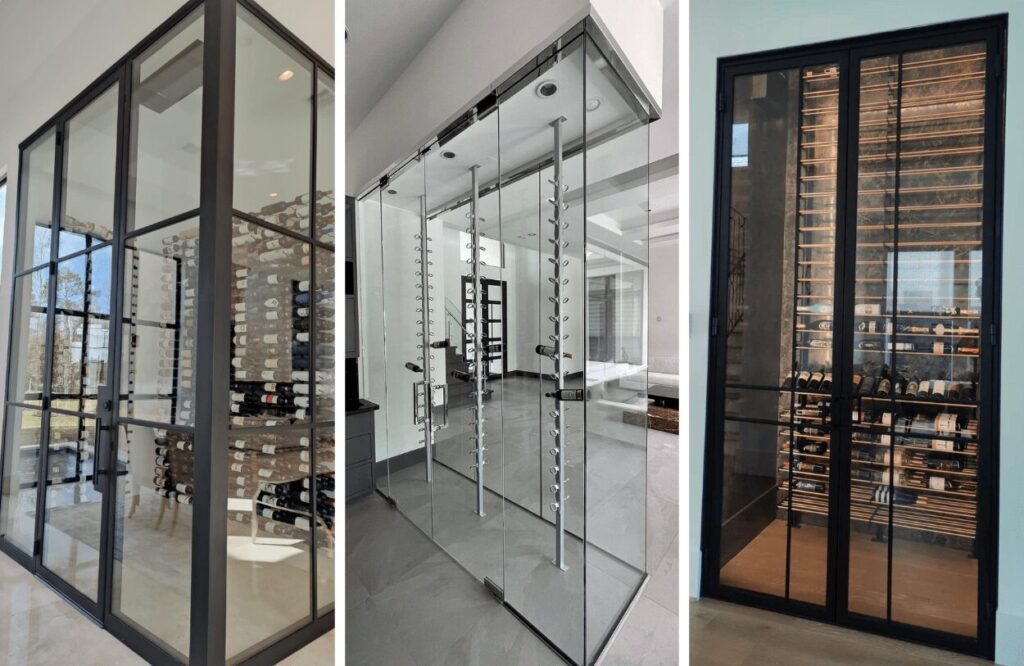Explaining The Importance Of Glass Wine Cellars
3 min read
Wine collectors are passionate about their expensive bottles and want them to be in perfect condition. That’s why residences are hardly equipped with glass wine cellars. Even if the racks are made from glass, the cellar walls are usually made from concrete, wood, or other materials. However, that’s not an option in the hospitality industry.
Commercial wine cellars in Houston, Texas must show their content most appealingly to customers and boost sales. That’s why they are usually made from glass. Let’s explore why glass is often the material of choice in commercial cellars.
Benefits Of Glass Wine Cellars For Businesses:
- Visual impact– A clear view of the cellar and the wine bottles sparks the interest of customers who aren’t even interested in wine. On the other hand, specific high-end bottles draw enthusiasts and increase sales.
- Amazing ambience– Glass creates a modern and very sophisticated atmosphere. The elevated ambience makes your customer feel the premiumness of your establishment.
- Appear larger– Modern glass wine cellars in Houston, Texas create the illusion of expanded space and can make your cellar appear larger than it is.
- Easy inventory management– Your staff has an easier time sorting wine bottles and locating them immediately when an order is placed.
- Plenty of room for customization– Unlike wood and steel, glass can be easily customized to any shape you want and fit your space perfectly.
No wonder glass wins over other materials at wineries, restaurants, and other such establishments that need commercial wine racks in Houston, Texas. Despite its aesthetic allure, glass has several flaws as a wine cellar material. So, how do you fix it?
Flaws Of Glass Wine Cellars And Their Solutions:
1. No Protection Against Light
Light is detrimental to wine for several reasons. UV rays affect the natural amino acids and flavonoids in wine and make them go through chemical reactions to create sulfuric compounds. This drastically changes the aroma and taste of wine and ruins a good bottle. Light is also responsible for accelerating aging and getting rid of the fruity notes in wine.
Clever commercial wine cellar design must overcome this major flaw. Winemakers often use UV filters and tinted glass to address this issue and advise against fluorescent lighting inside the cellar. Sometimes, they also resort to thick and fritted glass that can diffuse light to minimize exposure. Your cellar also needs to be placed away from direct sunlight. So, deep inside your establishment instead of being close to the entrance.
2. Conducts Heat
Wood and concrete are amazing at insulation while glass isn’t. Instead, it conducts and sometimes amplifies heat. Heat is an aging accelerator for wines and makes the tannins inside the wine bitter and harsher than they need to be. Temperature swings can also impact the acid balance in wine and make it more vinegary.
That’s why your wine racking system needs to be behind double or triple-paned glass that has insulation layers against heat. Your cellar also needs a robust climate control system with strategically placed temperature sensors that help to maintain your wine collection at the right temperature.
3. Moisture Trap
Glass walls can trap moisture or allow for exaggerated evaporation which leads to sharp fluctuations in humidity levels. If the cellar gets too dry, it may shrink the cork on wine bottles and cause leaks. On the other hand, high humidity makes room for mold growth. Fortunately, this can be fixed by designing a cellar with good ventilation and humidity monitoring systems. Usually, a high-end climate control system can handle both temperature and humidity swings.
4. They Get Noisy
Glass has poor noise isolation that doesn’t lose out to its heat-conducting properties. So, loud cooling systems can be bothersome to customers while they are choosing a bottle. Fortunately, a quiet cooling system and hidden dampening material can fix this issue. Make sure that your cellar manufacturer also installs and seals the glass walls properly to prevent sound and air leaks.
Glass makes for the most captivating and striking wine cellar designs. However, their major flaws related to heat, noise, humidity, and light must be solved to strike the balance between form and function. Talk to your cellar maker about the above-mentioned concerns for a flawless build.
Summary: Unveiling the truth about glass in commercial wine cellars! This blog explores why glass reigns supreme for wine storage while offering expert tips to address its limitations.







